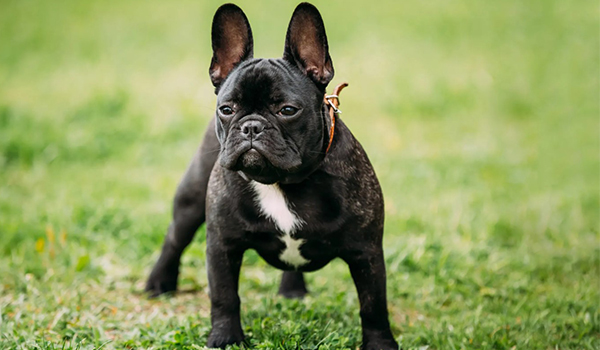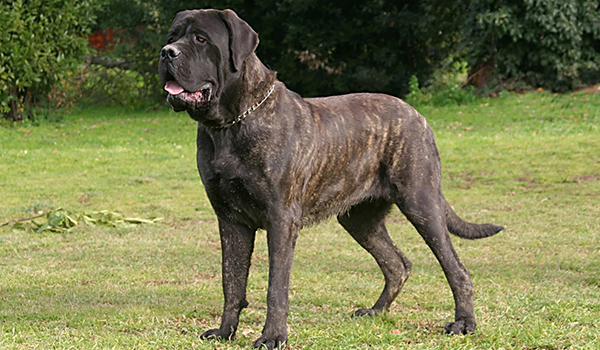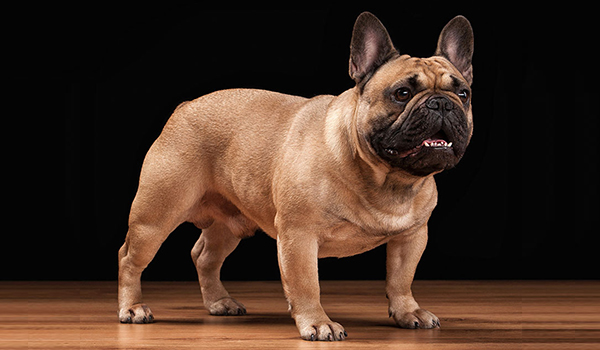The Doberman Pinscher is the epitome of canine elegance, power, and loyalty. With their sleek, muscular build, noble stance, and intelligent, alert expression, they are a breed that commands attention and respect. Bred specifically for personal protection, they combine a formidable presence with a deep devotion to their family, making them unparalleled guardians and companions.
However, their intelligence, energy, and protective instincts demand a knowledgeable and committed owner. This comprehensive guide will explore the reality of life with a Doberman to help you determine if you have the experience, leadership, and dedication to meet the needs of this sophisticated and powerful breed.
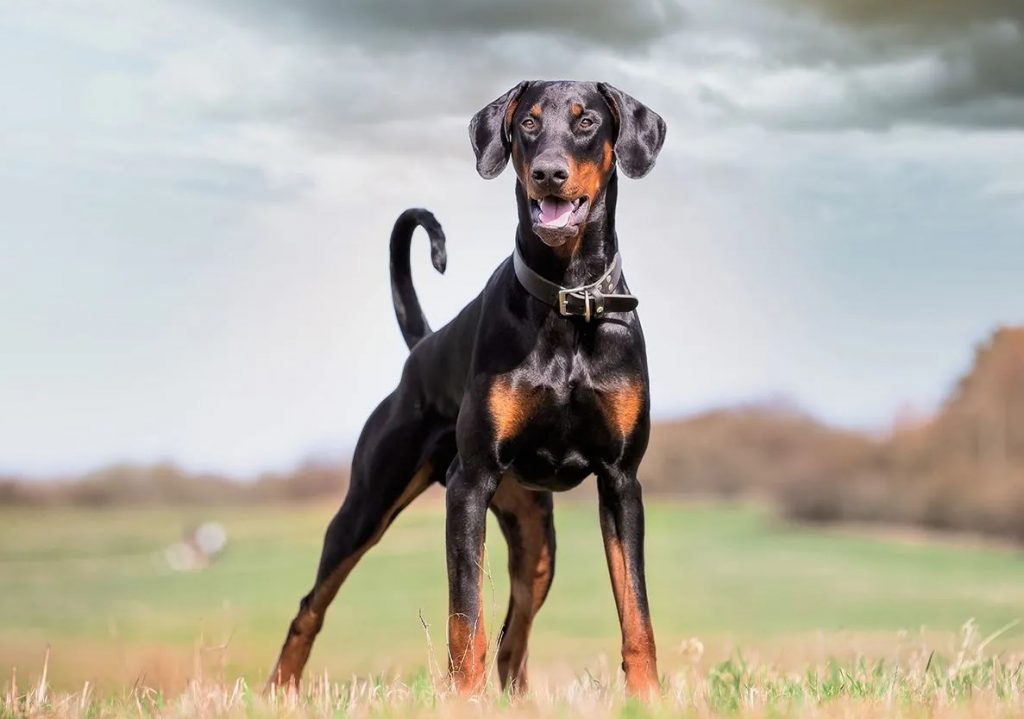
Breed Overview
- Group: Working
- Height: 24 – 28 inches (at the shoulder)
- Weight: 60 – 100 pounds
- Life Span: 10 – 12 years
- Coat: Short, smooth, thick, and hard. It lies close to the skin and requires minimal grooming. Common colors include black, red, blue, and fawn, all with rust-colored markings.
A Brief History: The Tax Collector’s Companion
The Doberman Pinscher is a relatively modern breed, developed in the late 19th century in Germany by Karl Friedrich Louis Dobermann. A tax collector who also ran the local dog pound, Dobermann wanted a medium-sized dog that was intelligent, loyal, intimidating, and capable of protecting him during his rounds.
While exact breeds used are unknown, it’s believed the Doberman is a mix of several breeds including the Rottweiler, German Pinscher, Weimaraner, and possibly the Greyhound. The result was a sharp, agile, and fearless dog that quickly gained a reputation as an ideal guardian and police dog.

The Doberman Pinscher Temperament: The Velcro Protector
A well-bred, properly socialized Doberman possesses a temperament that is both noble and deeply affectionate. They are often called “velcro dogs” for their intense attachment to their family.
- Loyal & Protective: Their devotion to their family is absolute. They are instinctively protective and highly observant of their environment, making them exceptional natural guardians. This trait requires careful management through socialization.
- Intelligent & Trainable: Ranked among the most intelligent dog breeds, Dobermans are highly trainable and eager to learn. They excel in obedience, agility, schutzhund, and as service dogs. They need mental challenges to stay engaged.
- Energetic & Athletic: They are powerful athletes with great stamina. They require consistent, vigorous exercise to maintain their physical and mental well-being.
- People-Oriented: With their family, they are affectionate, sensitive, and often quite silly. They thrive on human companionship and do not do well when isolated or left alone for long periods.
- Reserved with Strangers: They are typically aloof and observant with strangers, which contributes to their effectiveness as watchdogs. They are not usually immediately friendly.
Caring for Your Doberman Pinscher
Exercise: A Must for a Sound Mind and Body
A bored or under-exercised Doberman can develop anxiety and destructive behaviors.
- Daily Requirements: At least 60-90 minutes of vigorous activity daily.
- Types of Exercise: This should include:
- Structured Exercise: Long runs, hikes, and brisk jogs.
- Mental Work: Training sessions, advanced obedience, and dog sports like agility or tracking.
- Playtime: Secure off-leash play in a fenced area or intense games of fetch.
- A Job is Appreciated: They thrive when they have a purpose, whether it’s a formal sport or a “job” like carrying a backpack on walks.
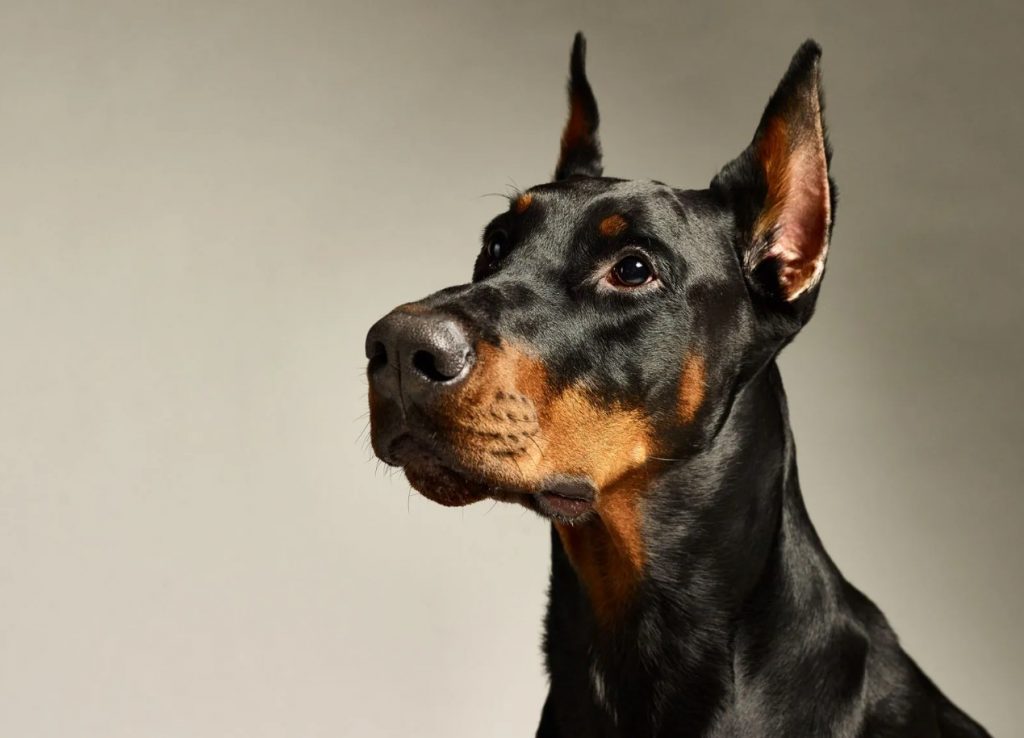
Grooming: Surprisingly Low-Maintenance
- Brushing: A weekly wipe-down with a grooming mitt or soft brush is sufficient to remove loose hair and keep their coat shiny. They are moderate shedders.
- Bathing: Bathe only as needed. Their short coat is easy to keep clean.
- Other Needs: Regular nail trimming is crucial for their athletic gait, along with ear cleaning and teeth brushing.
Training: Essential for a Balanced Guardian
Training is not optional with a Doberman; it is a fundamental part of building a stable, trustworthy companion.
- Start Immediately: Begin socialization and puppy training the moment you bring your Doberman home. Positive exposure to a vast array of people, environments, sounds, and other animals is non-negotiable to ensure a confident, well-adjusted dog.
- Seek Professional Guidance: Enrolling in obedience classes with a knowledgeable trainer is highly recommended. They need a confident, consistent leader who uses positive, reward-based methods.
- Build a Bond: Dobermans are sensitive and respond poorly to harsh treatment. Training should be based on mutual respect and a strong bond. They aim to please their trusted handler.
- Channel Their Instincts: Provide appropriate outlets for their intelligence and drive through advanced training and sports.
Health: What to Be Aware Of
The Doberman is a magnificent breed but is prone to several serious genetic health issues. Choosing a reputable breeder is the most critical step in acquiring a healthy dog.
- Dilated Cardiomyopathy (DCM): This is a devastating and common heart disease in the breed that leads to an enlarged heart and congestive heart failure. Reputable breeders perform annual cardiac screenings (echiocardiograms and Holter monitors) on their breeding dogs.
- Von Willebrand’s Disease: A blood clotting disorder similar to hemophilia in humans. Breeders should DNA test for this.
- Hip Dysplasia: A degenerative joint condition. Responsible breeders provide OFA or PennHIP certifications.
- Wobbler Syndrome: A neurological condition affecting the cervical spine, which can cause gait instability and pain.
- Hypothyroidism: A manageable thyroid disorder that can cause weight gain and skin issues.
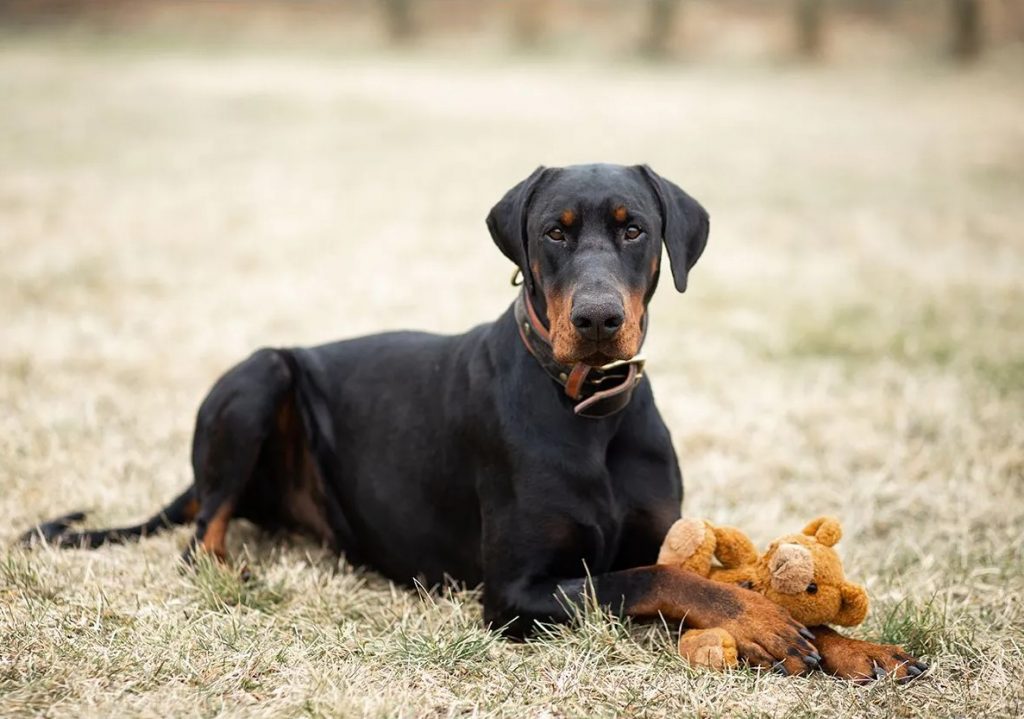
Is a Doberman Pinscher Right For You?
A Doberman Pinscher might be your perfect match if you:
- Are an experienced dog owner who can provide firm, confident, and consistent leadership.
- Want a loyal, intelligent, and active partner for sports or protection work.
- Lead an active lifestyle and can provide extensive daily exercise and mental stimulation.
- Are seeking a deeply devoted family guardian that is affectionate with its members.
- Understand the importance of rigorous, early socialization.
You should absolutely reconsider if you:
- Are a first-time dog owner.
- Want a dog that is immediately friendly with all strangers.
- Have a sedentary lifestyle or are away from home for long hours regularly.
- Are unable to provide consistent training, socialization, and leadership.
- Are not prepared for potential breed-specific legislation (BSL) or higher homeowners insurance premiums.

Finding Your Doberman Pinscher
- Reputable Breeders: This is paramount. A responsible breeder will:
- Health Test: Provide clearances for DCM (cardiac), hips (OFA/PennHIP), and DNA test for Von Willebrand’s. They should be transparent about health issues in their lines.
- Focus on Temperament: Breed for stable, confident, and sound nerves—not hyper-aggression or shyness.
- Interview You Thoroughly: They will want to ensure you have the experience, lifestyle, and home environment suitable for a Doberman.
- Rescue & Shelters: Doberman-specific rescues are very active. Many dogs end up there due to owners being unprepared for their needs. Adopting an adult can be a wonderful way to offer a second chance.
Understanding the Cost: The initial purchase price from a reputable breeder in the U.S. is high, typically $2,000 to $3,500+, due to the extensive health testing involved. However, the lifetime cost of ownership is the real consideration. Owners must budget for high-quality food, potential veterinary care for serious conditions like DCM, professional training, and liability insurance.
Bringing a Doberman Pinscher into your life is a commitment to a powerful, intelligent, and sensitive partner. In return for your dedicated leadership, socialization, and care, you will gain a loyal guardian whose love and devotion for its family is truly profound.

